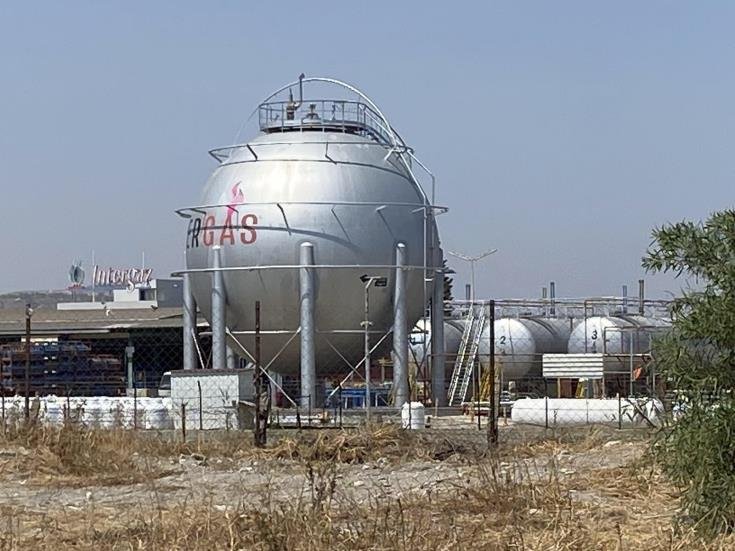The delay in introducing natural gas to generate electricity puts energy adequacy at risk, Akel said on Tuesday after Phileleftheros reported that the electricity authority (EAC) must, under commitments made to the EU, decommission six turbines at the Dhekelia power station.
The six turbines account for about 25 per cent of the energy produced, the newspaper added.
As part of a drive to reduce emissions, Cyprus had entered into an undertaking with the European Commission, that it would stop using the six turbines once it had used up 18,000 hours of operation – something which Phileleftheros said applies from the end of 2021 – two years earlier than the initial grace period given by the EU.
The issue was recently discussed at the presidential palace at meetings called by President Nicos Anastasiades on the EAC in the new competitive environment, it added.
Cyprus’ plans to introduce natural gas to produce electricity rather than the more polluting mazout currently used by the EAC have been hit by delays. This has meant not only higher emissions – and by extension charges – but the risk of having six power-generating turbines decommissioned. These according to Phileleftheros produce 360 MW of Cyprus’ total production of 1,478 MW in electricity.
For Akel, the closure was to be expected given the government’s failure to import natural gas in time – a delay that already entails huge costs for consumers.
“The delays in implementing the country’s energy plans and the absence of long-term planning rests on the shoulders of the government and Disy, but unfortunately, the cost will once again fall on society,” Akel said.
The party said it has discussed energy security with the president and submitted proposals, including making use of revenue from the auction of emission rights and renewable energy projects.
For its part, Edek said that the issue underlines the need to speed up renewable sources of energy and serves as a strong reminder that environmental policy and proper planning should serve as pillars for every project.
In a written statement, MEP Demetris Papadakis said the development only demonstrated Cyprus’ failure to make the best of renewable energy.
He noted that under the Papadopoulos government, a proposal to use natural gas for power generation in 2010 had been rejected for party political reasons, and as a result Cyprus has had to pay millions in fines to EU, while the environment has been polluted and the economy burdened with costly electricity bills.







Click here to change your cookie preferences